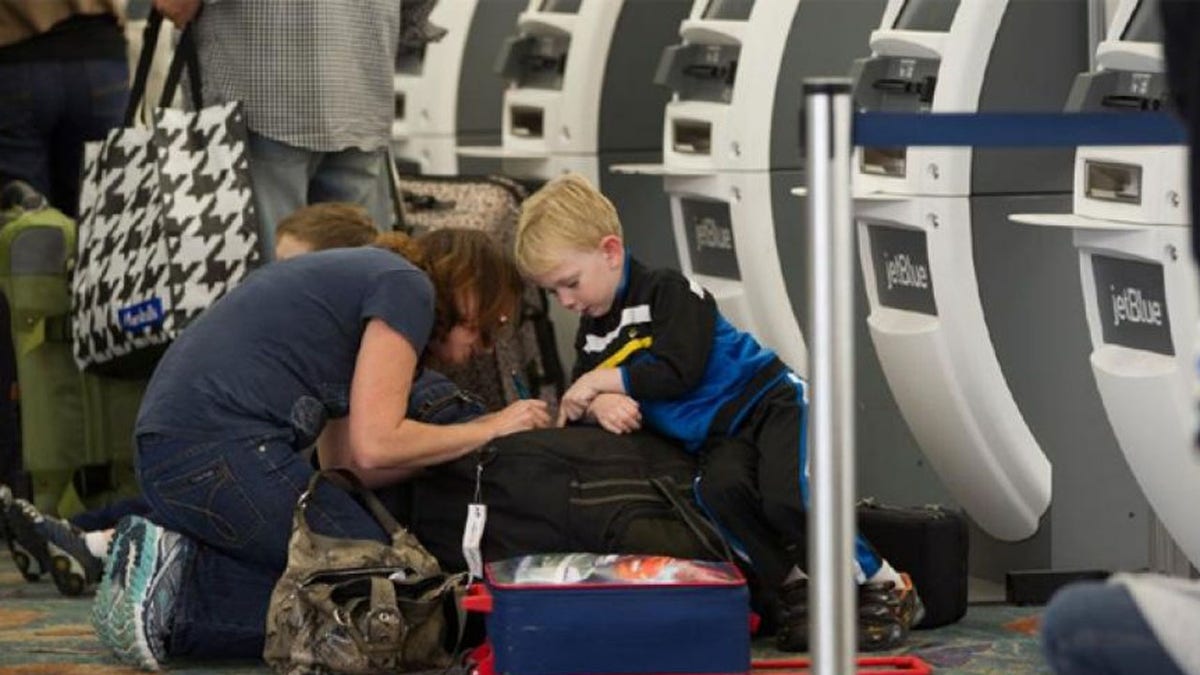
Rep. Jerry Nadler (D - N.Y.) wants to add a special amendment to the FAA funding bill that is slated for a vote at the end of next month that he hopes will make travel a little easier on families. The idea is pretty simple: airlines would be required to seat families with children under 12 together when they fly on the same plane.
Is a law like this really necessary?
Actually, travel and family advocacy groups have been trying to bring attention to this particular issue for a while now. Due to airline seating policies and a la carte pricing that sometimes requires people to pay extra if they want to select a specific seat, young children do, occasionally, find themselves sitting in a different part of the airplane from their parents.
Nadler explains the idea that is driving his law: “Families should not be stuck paying hidden fees, or buying ‘premium’ seats, simply because they wish to be seated together on crowded flights. It is positively absurd to expect a two- or three-year-old to sit unattended, next to strangers, on an airplane. It is up to air carriers to make their seating policies clear and easily accessible to the public.”
Cabin crews often help
To be fair, flights crews will often ask passengers to switch seats so that families can sit together if they are separated. And it’s not uncommon for kindly fliers to volunteer to switch without such a request from the staff. Without Nadler’s amendment, however, parents actually have no legal right to demand that they are allowed to sit next to their children.
Airline trade organization Airlines for America has said that such seating decisions are best left to customer-facing staff: "We believe that customer service decisions are best left to the dedicated and experienced airline employees who interact with and receive feedback from their customers every day — not government.”
Back in 2013, Nadler introduced a similar bill, which he called the Families Flying Together Act. It died in Congress before it could be enacted.
The law will affect booking, not service at the gate or on the plane
The language of the current bill does leave some room for airlines. If enacted, the 2016 version of Families Flying Together would require airlines to notify passengers when they are unable to make reasonable accommodations that would allow the family to sit together. However, they would have to make this notification at the time of booking, not at the gate. This would allow families to take the fact that they would not be able to sit together into consideration when purchasing tickets.
Nadler is well aware of the fact that the FAA funding legislation is something that Congress must pass on time. He is not the only representative to try and attach a “pet project” to the bill. Politicians are scrambling to add a number of amendments before the late-March vote. At the same time, because funding the FAA is so necessary, these amendments could be stripped out if they hold up the passage of the bill. Airline lobbyists will certainly take issue with some of the add-ons that are currently being proposed.
More from TravelPulse
Another View of Paradise: Touring the Caribbean by Helicopter
8 Things to Do in South Carolina While Following the Candidates
American Airlines Teams with Uber To Make Travel Easier
Top Ten Reasons To Visit The Arctic With Quark








































